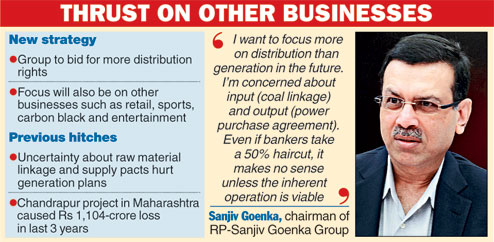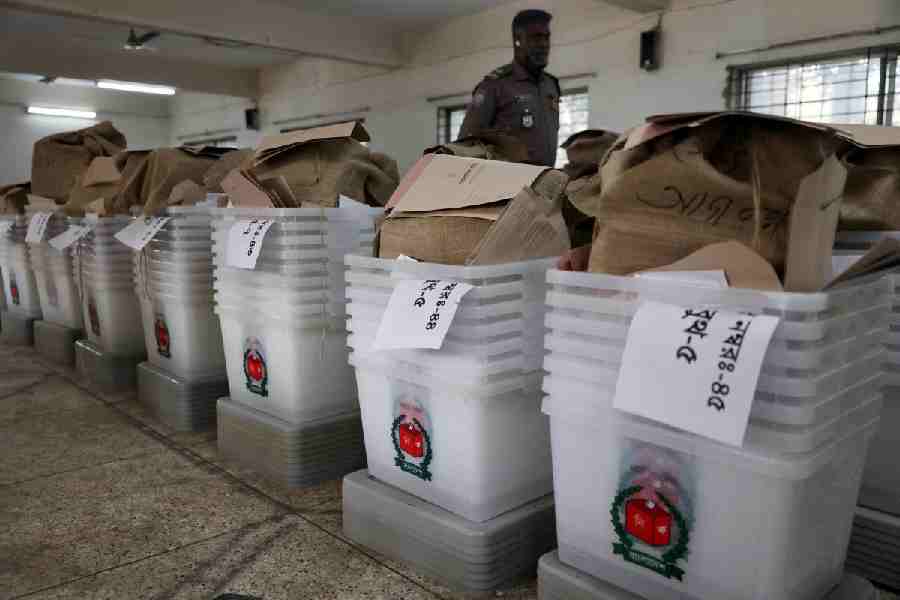Calcutta, July 24: RP-Sanjiv Goenka Group, the owner of CESC that has been supplying power to Calcutta for more than a century, will shift its focus away from power generation to distribution to protect itself from regulatory risks.
Besides distribution, the second-largest conglomerate from Bengal will beef up revenues from other businesses that include retail, sports, carbon black and entertainment, as part of an overall strategy.

"I want to focus more on distribution than generation in the future," said Sanjiv Goenka, chairman of the Rs 31,000-crore (asset) group.
CESC, the flagship of the empire, has 1,725MW thermal power capacity in Bengal and 600MW at Chandrapur in Maharashtra, besides having 141MW in renewable sources.
The company has distribution rights in Calcutta, parts of Howrah and Hoogly in Bengal, Noida in Uttar Pradesh and Bharatpur and Kota in Rajasthan, the last two being acquired about a month back.
Goenka said CESC would bid for more distribution rights in the future. However, he sounded lukewarm about adding fresh generation capacity even though there are several stressed assets up for sale and whose acquisition price, according to Goenka, will come down in the next one year.
"I'm all concerned about input (coal linkage) and output (power purchase agreement). Even if bankers take a 50 per cent haircut, it makes no sense unless the inherent operation is viable," he said.
Big bets
The approach of the group, headed by Goenka and his Wharton graduate son Shashwat, towards the power business may have been influenced by the two big acquisitions it made in the last decade.
CESC took a big bet in power in 2009 when it bought Dhariwal Infrastructure from the Manikchand family in Maharashtra. The Chandrapur power project was then considered as one of the most advanced in terms of key parameters such as land, coal supply agreement, water allocation and environmental clearance. But while the inputs were in place, the project had no power purchase agreement (PPA).
During implementation, the rules of the game changed and CESC was caught in a trap. After the controversy over coal block allocation, the UPA government refused to supply coal to a power plant without PPA. Units were commissioned in 2013-14, but they remained largely idle, resulting in a Rs 1,103.93-crore loss in the last three years.
Firstsource success
In contrast, there was no looking back from the day it announced the acquisition of a majority stake in BPO player Firstsource Solutions even as analysts had slammed the deal as an "unrelated" business. Firstsource became operationally stronger, emerging as the second-most profitable company within the group.
CESC's investment quadrupled. The Firstsource stock closed at 50.95 on the BSE on Friday against the acquisition cost of Rs 12.20 apiece. It recently signed a 10-year contract with the UK's Sky TV.
Asked if this would prompt him to think of more such out-of-the-box acquisitions, Goenka smiled. "We want to be in a space with less regulations," he said.
CESC earns 55.6 per cent of its revenue from the power business, according to a presentation made to investors earlier this year. However, more than half of the profit now comes from the non-power business. The mix will change once retail arm Spencer's and Chandrapur become profitable in a year or two.











